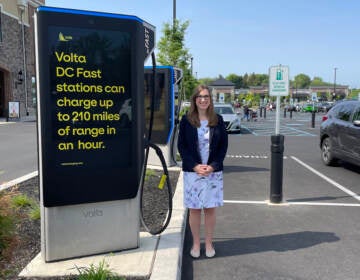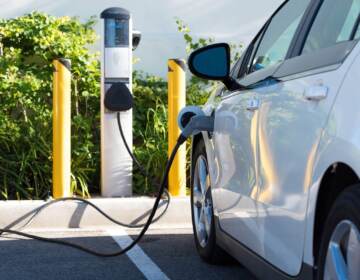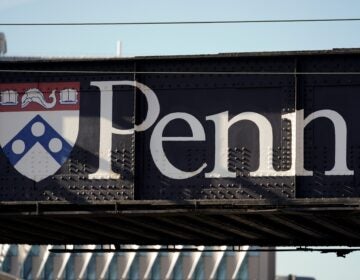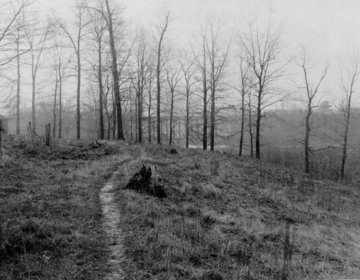‘At the forefront’: Students at Delaware vo-tech school install, operate EV charging stations
Delcastle Technical’s project launches as Delaware is encouraging the purchase of EVs, and requiring new homes to have charging infrastructure.
Listen 4:09
Delcastle geometry teacher Chris Langhorn powers up his electric Nissan Leaf at one of the school's EV charging stations. (Cris Barrish/WHYY)
From Philly and the Pa. suburbs to South Jersey and Delaware, what would you like WHYY News to cover? Let us know!
Chris Langhorn, a geometry teacher at Delcastle Technical High School in Delaware, has recently started making a lunchtime pitstop at the school’s electrical trades shop.
Langhorn doesn’t meet with students. Instead he pulls his Nissan Leaf in front of two new electrical vehicle charging stations.
He inserts his credit card, grabs the connecting plug that resembles a hair dryer, plugs the device into the electrical outlet under the silver sedan’s hood, and waits while the juice flows into his vehicle. He spends about $2.50 for the service that provides far more power than he needs for his 60-mile daily commute. It costs less than gasoline would, too.
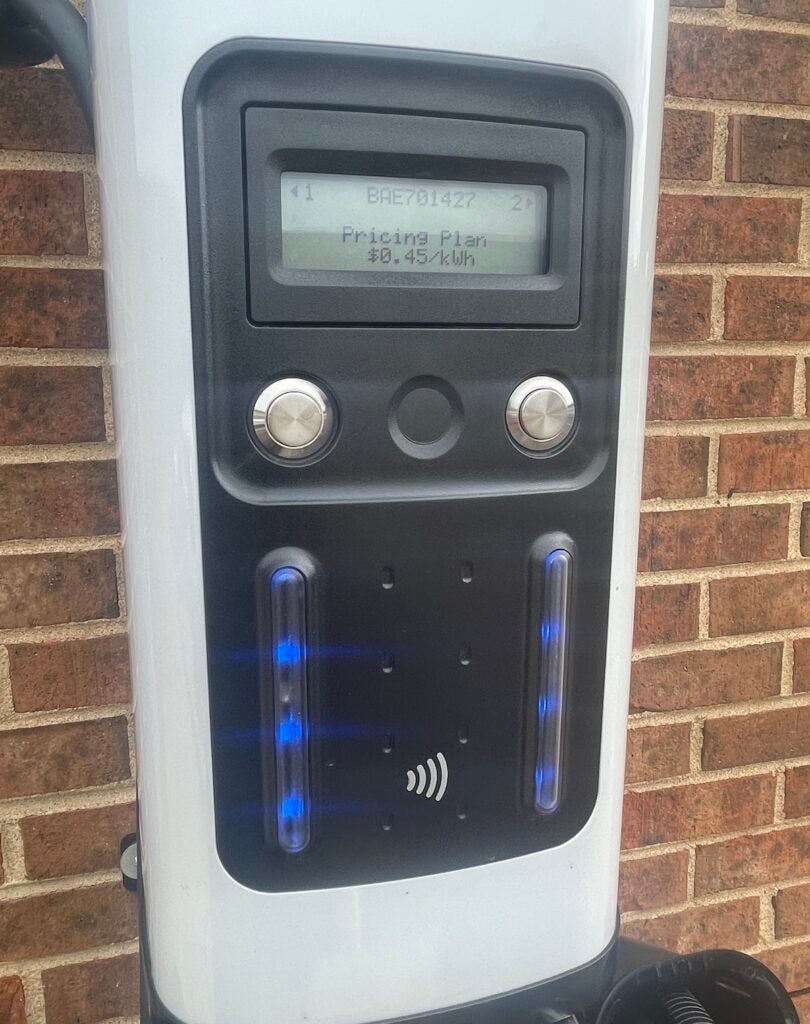
“I knew they were gonna have it here,’’ Langhorn says of Delcastle’s charging stations, which began operating last month. “That’s the reason I started purchasing electric cars. I figured it’s the best of both worlds. I can charge up at home and charge up when I get to work.”
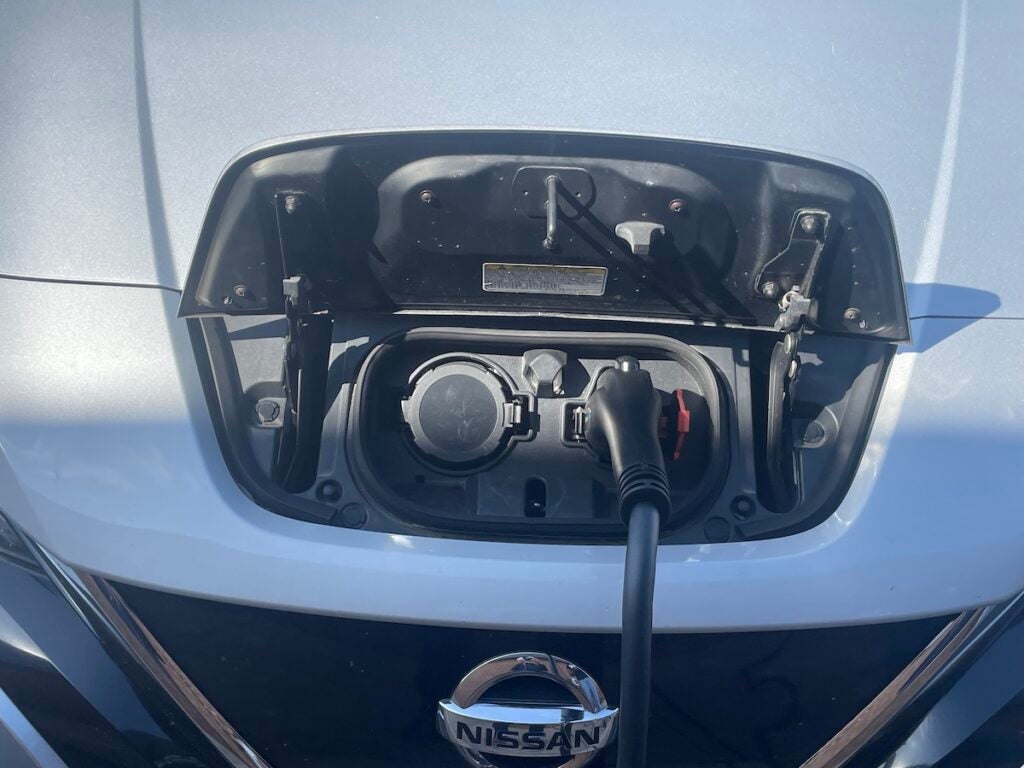
With state and federal officials encouraging consumers to buy fully electric vehicles and plug-in hybrids with tax credits and rebates worth up to $10,000, and the auto industry ramping up production of EVs, Delcastle has become the state’s first school to incorporate the technology into its curriculum.
Electrical trades teacher Chris Panico, who helped conceive the project, says today’s vo-tech students need to be on the cutting edge to prosper.
“We wanted to be on the forefront. We are at the forefront,’’ Panico told WHYY News. “Sustainability is the future and the electrical industry is leading the way. If we’re not going to show our students how to do it, then we’re putting them at a disadvantage.”
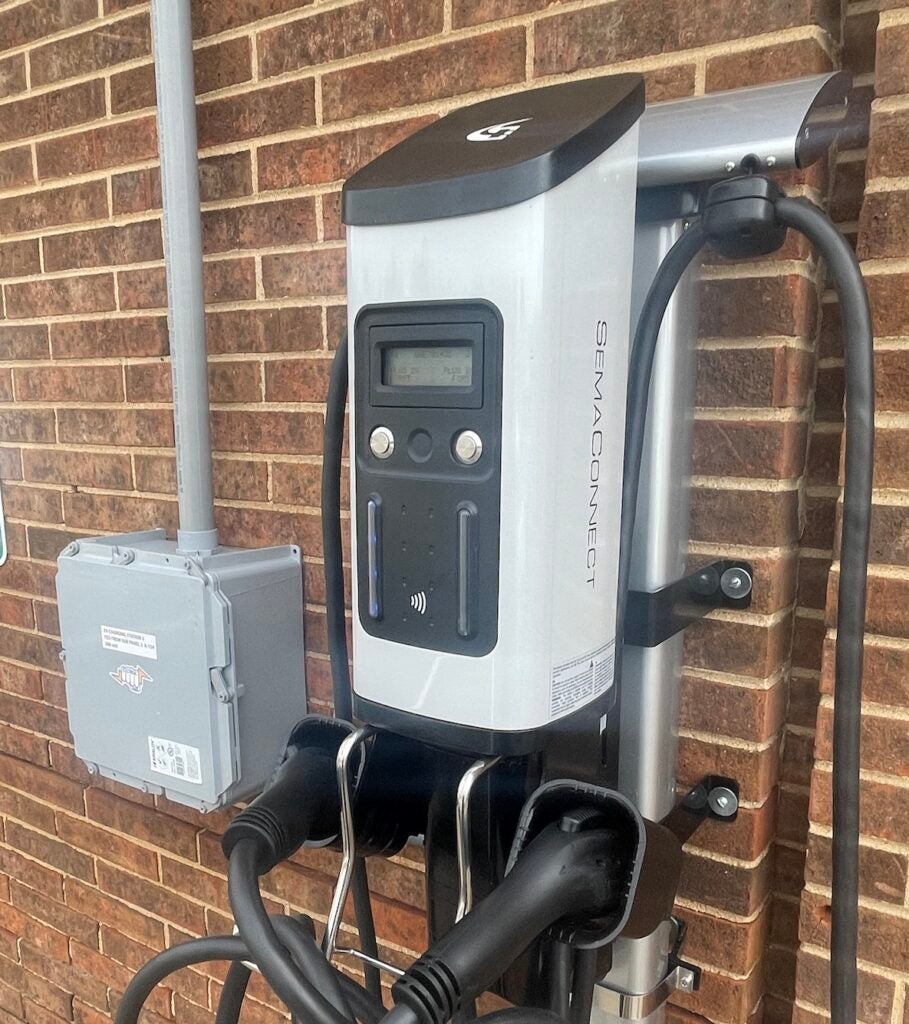
The project started last academic year and involved work by students in the drafting, welding, and electrical programs.
They designed the charging area that encompasses four parking spots, assembled the charging kits, welded the steel to carry the power from the building to the stations, and wired the system.
William Betsch works on his welding at Delcastle High. Stay tuned for upcoming report on the Delaware vo-tech school’s innovative project. pic.twitter.com/se4RrtQB9U
— Cris Barrish (@BarrishCris) October 17, 2023
Two charging stations are now available for use by school employees, with students monitoring usage and maintaining the system. A third EV charging station is in the electrical trades shop, where it’s being used to teach the technology to Delcastle’s high school and continuing education students.
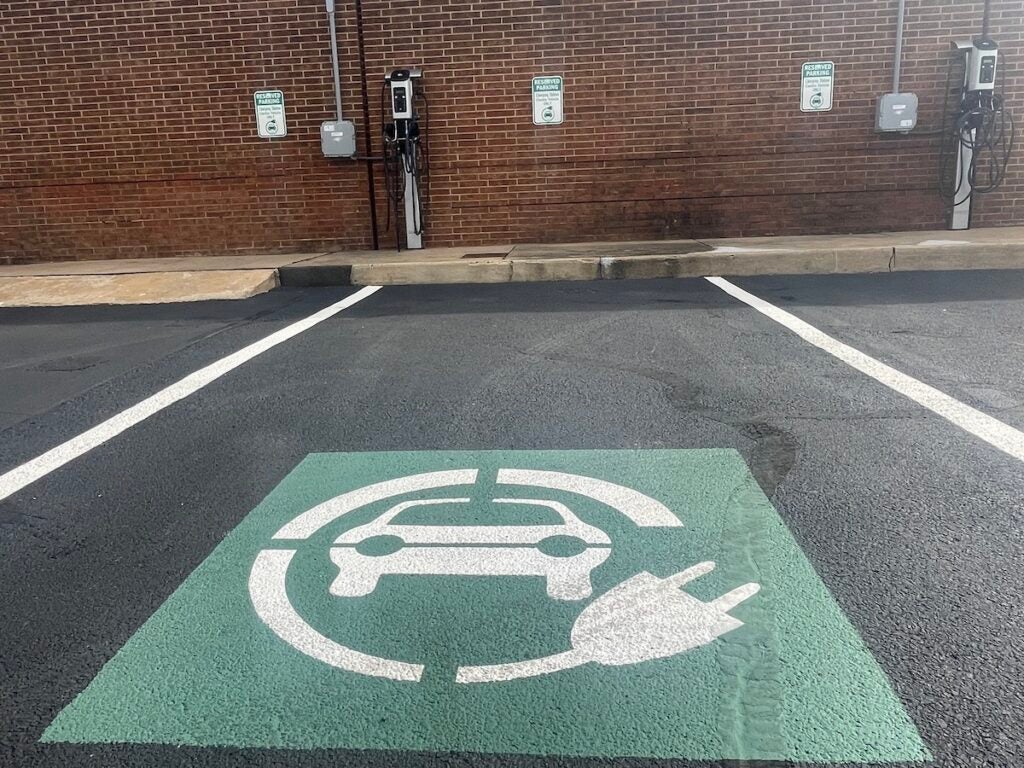
School officials said plans are also in the works for students who study auto technology and mechanics to get training on servicing EVs. The New Castle County Vocational Technical School District also hopes to eventually install EV charging stations at its three other high schools — Hodgson, Howard, and St. Georges.
“We need to make sure we are preparing our students for every possible avenue or pathway they could go down after graduation,’’ said Dan Edelen, a district career and technical specialist. “And with the development of the electric vehicles, there’s a need for this. You need to have an electrical license to install these.”
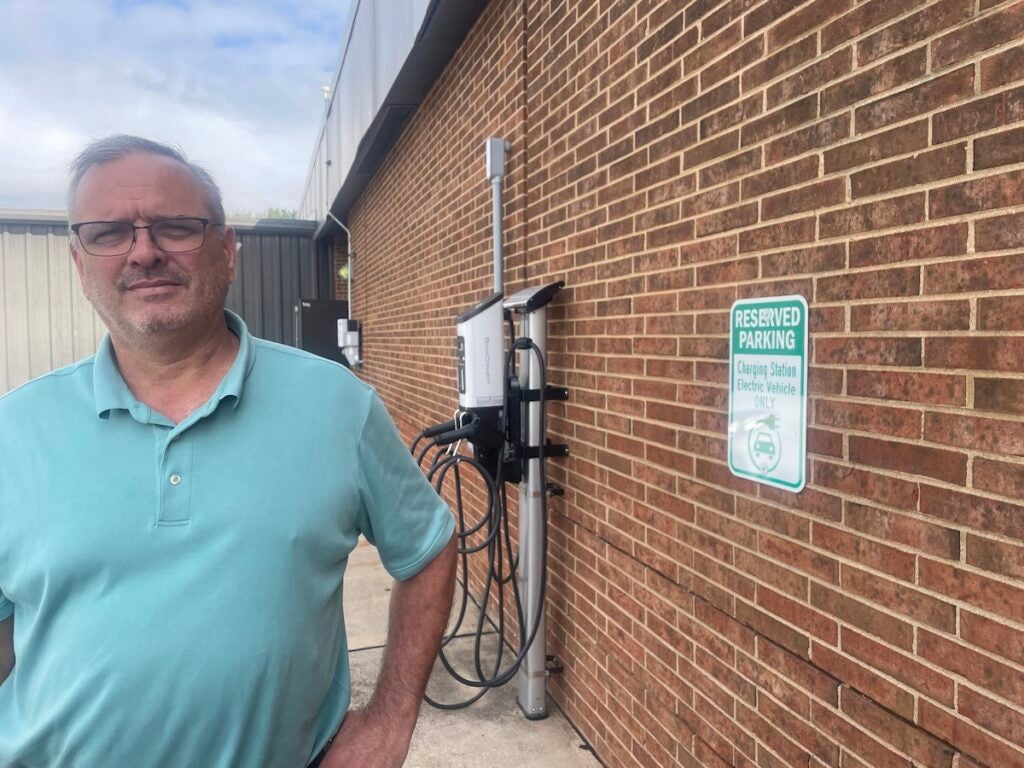
Delcastle launched its project as Delaware is considering whether to require that by 2035 all new cars and light trucks sold at dealerships statewide are EVs. That rule, if adopted, would require EVs to make up 35% of cars sold in 2026. Over the next decade, the percentage of EVs sold would gradually increase to 100%. A decision is expected later this year.
This year, state lawmakers also passed a bill that requires all new homes to be what’s known as EV-capable. That means the houses must be built with the infrastructure — wiring, conduit, and junction box — to install the equipment needed to charge EVs.
‘Working on something that is gonna come to life’
Aleksander Mirada-Vasquez, a Delcastle junior majoring in electrical trades, said it was a “thrilling experience” to set up the piping and then install the wiring to power the EV charging stations.
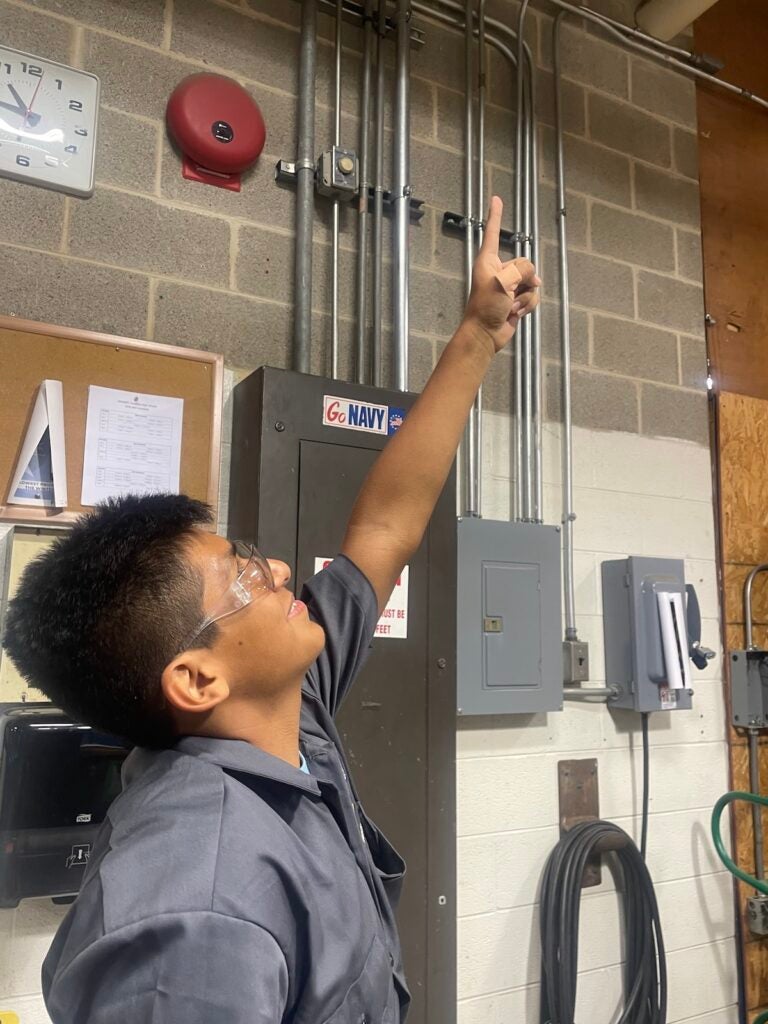
He wasn’t thinking about climate change and the need to cut back on fossil fuels to reduce the level of harmful greenhouse gases in the atmosphere, but rather about learning all the skills necessary to become a licensed electrician.
“I was told we’re making electrical chargers out there,’’ Mirada-Vasquez recalled as he showed the maze of wires inside the electrical shop. “I’m like, ‘Oh, that’s nice. That would be cool to have electric cars back there and maybe in the future, hopefully, I can get one too.’”
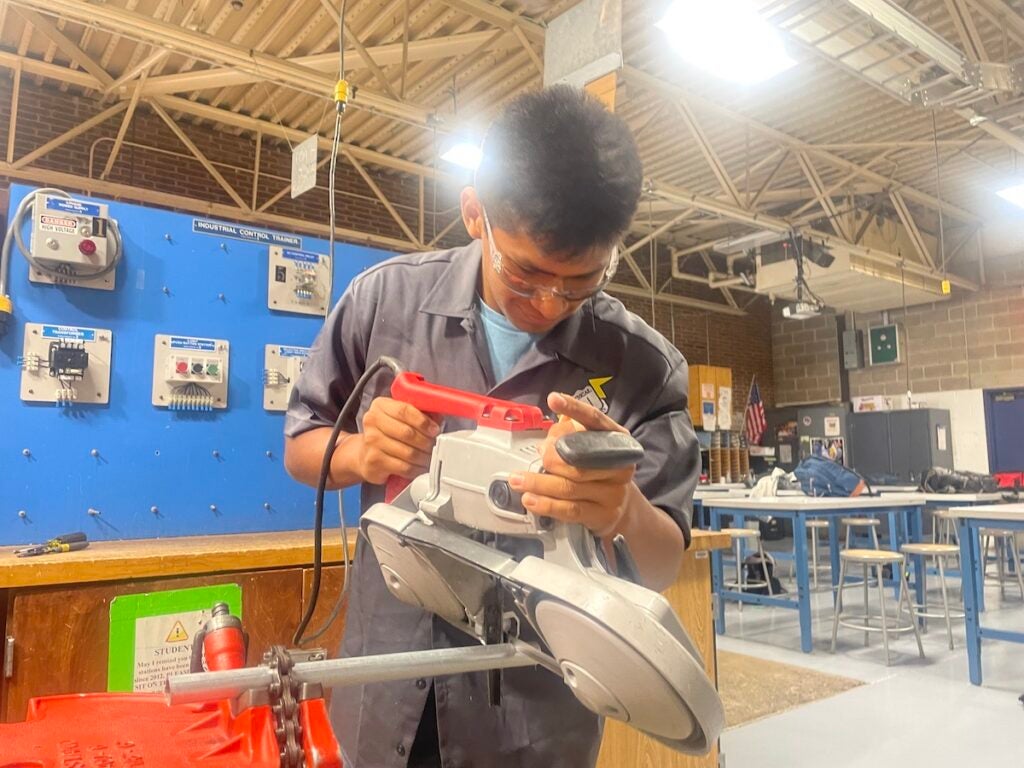
William Kisielewski, also a junior studying electrical trades, drilled holes and helped with the circuitry, saying he’s gratified to be in the first wave of Delaware vo-tech students preparing the state for a “cleaner energy” future.
“Basically, we can install them.’’ Kisielewski said. “We actually got these done.”
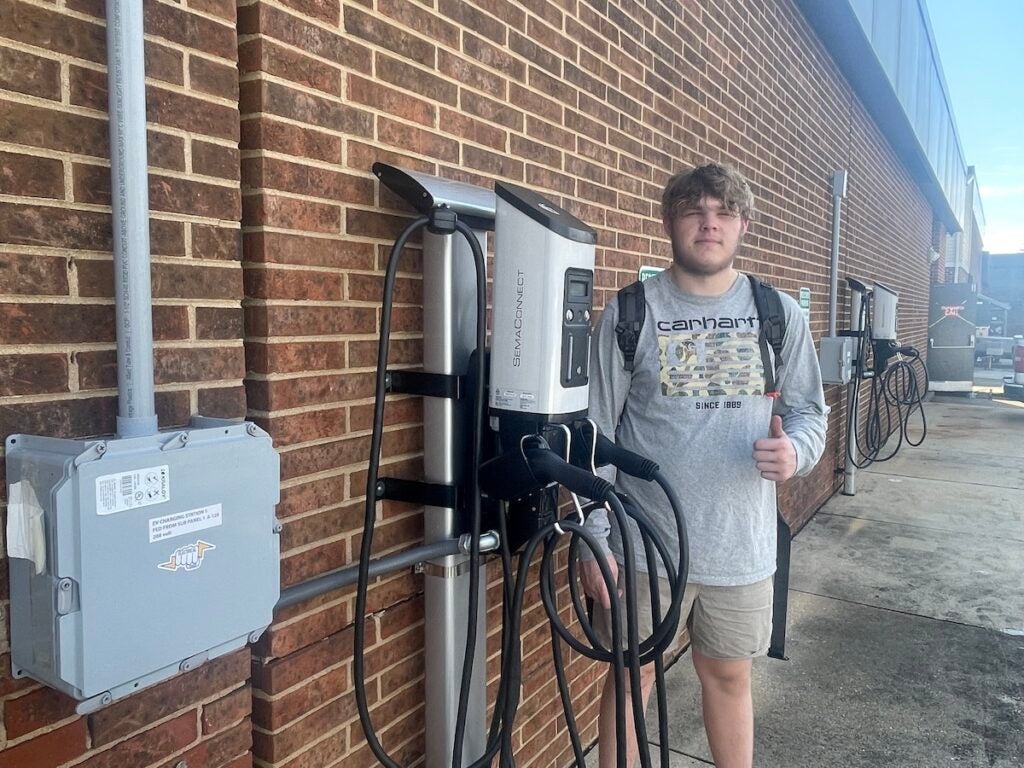
Adrianna Goursahab, a junior technical drafting student who aspires to become an architect, played a role in the process of configuring the two charging stations so they could accommodate vehicles in four parking spots while meeting local codes.
“The exposure of actually working on something that is gonna come to life and is gonna be of use for people, that was the most important part for me,” Goursahab said. “We work on group projects here but I feel like this one was more locked in as a memory because it did come to life.”
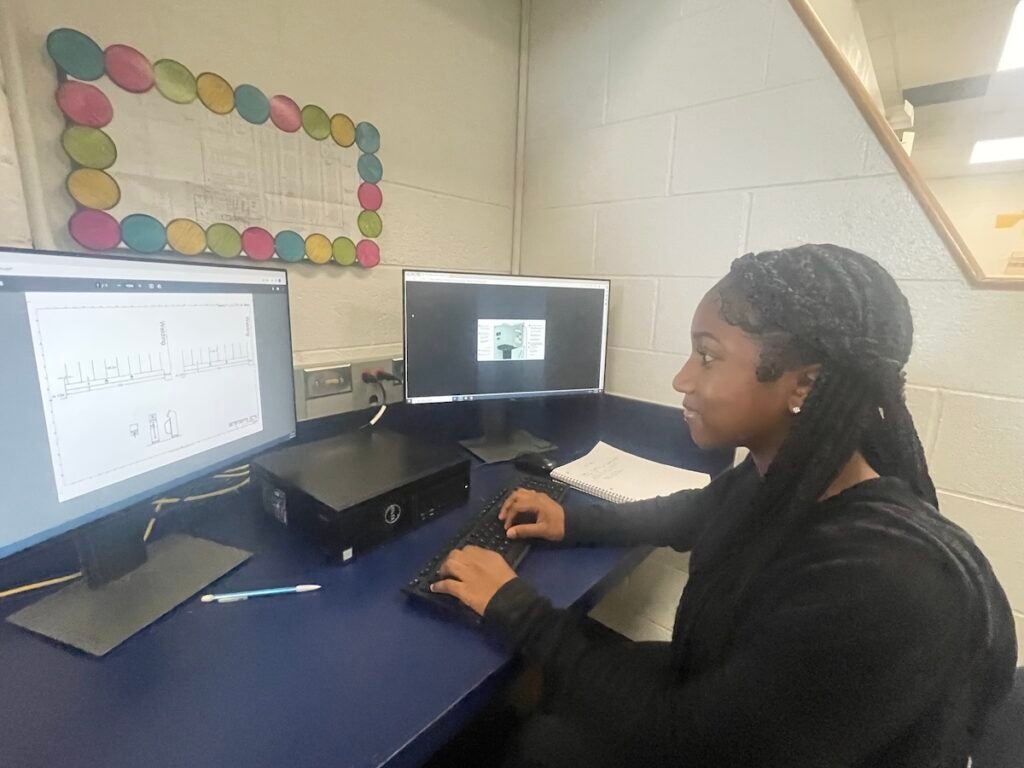
Drafting teacher Terry Hayes couldn’t agree more.
“We talk about it in here, about technology being innovative and things coming,’’ Hayes said. “So definitely a great opportunity for the students because they’re gonna live this. They are going to see so much. We saw a lot in our time but they’re going to see a lot more.”
Bryan Bryant, who teaches electrical trades, said it was important that students from different career programs participated.
“It was a great collaborative project that was able to come together to get these kids real world skill sets that they’re going to be able to use,’’ Bryant said. “We have business partners that install these already so they’ll be able to already have an understanding of what they’re doing.”
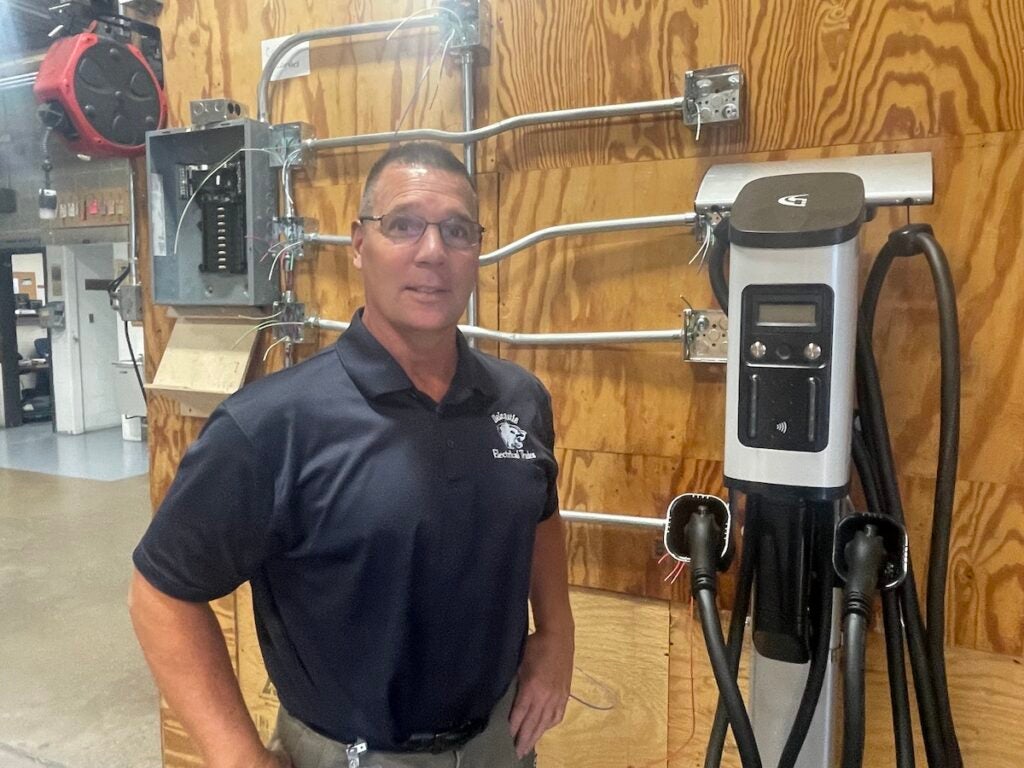
And that’s marching into the future, at the front of the pack.
“This technology is here now,” Bryant said. “If you go down the street driving, every other red light, you’ll see a couple EV vehicles. So it’s not coming, it’s here, and our students are being prepared for it.”

Get daily updates from WHYY News!
WHYY is your source for fact-based, in-depth journalism and information. As a nonprofit organization, we rely on financial support from readers like you. Please give today.



